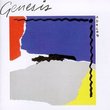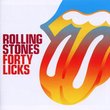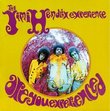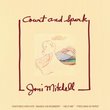| All Artists: Genesis Title: Nursery Cryme Members Wishing: 7 Total Copies: 0 Label: Atlantic / Wea Original Release Date: 1/1/1971 Re-Release Date: 9/20/1994 Album Type: Original recording reissued, Original recording remastered Genres: Pop, Rock, Classic Rock Styles: Progressive, Progressive Rock, Album-Oriented Rock (AOR) Number of Discs: 1 SwapaCD Credits: 1 UPC: 075678267321 |
Search - Genesis :: Nursery Cryme
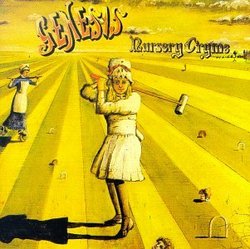 | Genesis Nursery Cryme Genres: Pop, Rock, Classic Rock
|
Larger Image |
CD DetailsSimilarly Requested CDs
|
Member CD ReviewsReviewed on 8/10/2009... Great CD
CD ReviewsGenesis is so EPIC! Joel Wiedrich | North Dakota | 09/28/2009 (5 out of 5 stars) "This is the second Genesis album I have bought now; the first being Selling England by the Pound. In many ways, I prefer Nursery Cryme over Selling England. The raw sound of Nursery Cryme is just so incredibly powerful. Although all the songs are well-written and very enjoyable, a few soar above the rest. The first is The Return of the Giant Hogweed. This is probably my favorite song on the album and has some incredible writing to it. Also, Seven Stones is a dramatic song that really makes you want to hear more of it. Sadly, it is only 5:11 long. The Musical Box is a great opener and the ending sounds very classical. All in all, a very great album." Dark mythic tales set to music sealchan | Oregon, United States | 02/19/2010 (4 out of 5 stars) "Nursery Cryme - Genesis (3.56 stars)
Original Release: 11/26/1971 Songs: The Musical Box (4 stars) The story behind this song and the lyrics are so distant from one another that it requires some imagination to connect the two. To appreciate this song you must find out the story from the album liner or some other source. Also, I have heard that the onstage performance that accompanies this song live probably aids very much in making meaning of these lyrics. I will probably want to find a youtube video of a live performance of this song sometime and watch it. The song starts after a murder (the "nursery cryme") has occurred. The music is calm, even sedate but its tone inhabits somewhere in the vicinity of a quiet madness. Very gradually the melodic themes pick up more intensity for a time and then relax again. There are extended instrumental sections and an aggressive fanfare on guitar and organ which coincides with part of the stories' drama where the concentrated passion of a lifetime is released. The song comes to a conclusion with a more joyful energy that detracts a little from the mythic horror of the rest of the song and even ends on a kind of a joyful, "happy" note. This song requires a lot of work to get its full value but if you meet it half-way it is rewarding. For Absent Friends (3 stars) After the horrors of the previous song I tend to see shadows of the former song in this seemingly innocent one where a girl is seen passing by alone. Also the song mentions that once there was four but now only two into which I find myself thinking of the couple and their murdered son and institutionalized daughter. It is as likely that this song has no relationship to the former and is simply a stark contrast with the former placed for maximum effect. Quiet, layered guitar and gentle vocals relax the mood nicely. The Return of the Giant Hogweed (3 stars) Intentionally silly song anthropomorphizing an exotic that has taken over the British landscape. Guitar and organ play a semi-comical war march to the lyrics. There is an instrumental section called "The Dance of the Giant Hogweed" which I imagine abstracts the work of the ill-tempered weed to bring their plot to "fruition". The venomous oath of the Hogweed is finally sung and an ominous guitar and organ and mellotron passage announces the chaos of war thereby concludes the song. To me the lyrical joke runs on a bit long in this long but entertaining song. Seven Stones (4 stars) Cases of individuals following their hunches or suspicions or intuitions are presented in the guise of the wise old man's stories. But the wise old man turns a trick in the end. A sometimes awkward rhythm section underlies this simpler composition. But the lyrics and the mellotron pump in mystery and passion to bring to this song a timeless mysticism. Harold the Barrel (3 stars) Clever dark comedy about a man who is living out the last unbearable moments of his life before taking the plunge from a tall building. Presented in a play format the protagonist is obviously surrounded by a society who seems insanely unprepared to rescue him. The instruments play an upbeat, light tone until the very end where profoundly sad piano chords escort poor Harold into the next world. Harlequin (3 stars) I'm not able to make sense of the lyrics; they seem to describe a scene and to explain something... Otherwise the instruments play in a straight-forward, syncopated way. The song has a quiet baroque feel with gentle harmonies and delicate sounds the never escape their calm demeanor. The Fountain of Salmacis (5 stars) This song compellingly tells a story that could be right out of Ovid's _Metamorphoses_ lending the ancient story a beautiful soundtrack. The pace never lets up as various musical ideas play out in time with the tale. In the moment of transformation the supernatural transformation is uniquely represented instrumentally but seemlessly with the song's overall flow. Instrumental sections keep the story moving without lyrics and lyrical sections progress elegantly and imaginatively. After making a full circuit the song returns to its original theme before moving into a glorious coda. Although this coda also aims at a "happy ending" it has a better fit to the song overall and features a sumptuous guitar passage that has a beauty all its own. One of the first great progressive rock songs. Album: In some ways this album, which has been referred to as a transitional album in many reviews, spells out a transition within the order of its songs. "The Musical Box" seems to harken back to the bitter darkness of _Trespass_. The middle songs reveal the humor and more straight-forward song style that would be present going forward. The dialogue of voices in some songs would also make very significant (in the history of classic prog rock) appearances later. "The Fountain of Salmacis" would tie the musical complexity of _Trespass_ back into this Genesis' greater song compositional skills and be a bar set for later highly instrumentally imaginative rock. In some ways the hard rock edge of _Trespass'_ "The Knife" is more present here as if that last song on the previous album anticipated this one. As with Jethro Tull's work during this same time period I find that my overall rating of the album declines slightly even as I can see a progression in the band's compositional abilities. But for all the great prog bands the next few years would be a sort of climax time of progressive rock as the greats of the genre seemed to peak more or less together in their ability to produce timeless music. MP3 recommendation: Nursery Rhymes (4.25 stars) 1. The Musical Box (4 stars) 2. Seven Stones (4 stars) 3. The Fountain of Salmacis (5 stars) " |

 Track Listings (7) - Disc #1
Track Listings (7) - Disc #1